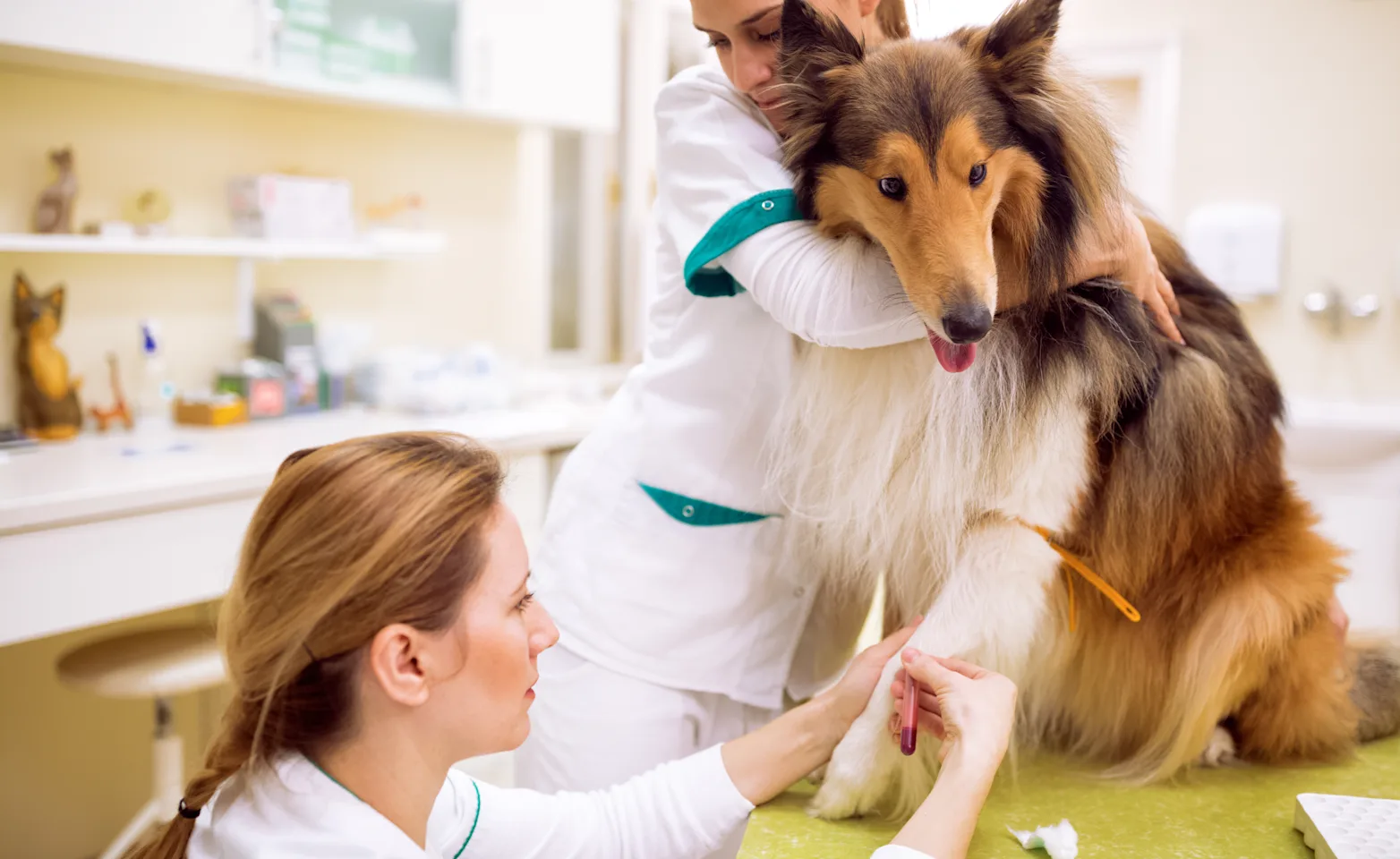Colorado Animal Specialty & Emergency (CASE)

Blood Bank

Eligibility Requirements:
Dogs:
Ages 1-6 years old (retire at 8 years of age)
Minimum of 55 lbs. (25 kg)
Healthy, calm, friendly disposition
Negative for infections, diseases and parasites
Current on core vaccinations
Year-round flea, tick and heartworm prevention
Cats:
Ages 1-7 years old (retire at 10 years of age)
Minimum of 10 lbs.
Healthy, calm, friendly disposition
Current on core vaccinations
Year-round flea, tick and heartworm prevention
Indoor only with no exposure to any outdoor cats

How To Get Started
Please review the eligibility requirements to see if your pet is a good fit to donate blood.
Our team will collect your pet’s medical history and perform a brief health screening. During the health screening, we will obtain a small amount of blood from your pet.
Once your pet is determined to be an eligible donor, we will contact you to set up the first donation appointment.
After your pet begins donating, they will receive lots of love, treats, and a bandana!
Program Commitment:
This program is completely voluntary, but due to the high cost of screening each prospective donor, owners are asked to commit to the following:
Dogs: Minimum 5 donations/year (up to 6)
Cats: Minimum 4 donations/year (up to 5)
Program Perks:
An annual physical exam by a licensed veterinarian
Annual full bloodwork, at no cost to the pet owner, and results shared with your family veterinarian after the first donation
Loving attention with each donation
Lots of rewards (aka treats and toys) for your pet!
FAQs about Blood Donation
Why do dogs and cats receive blood transfusions?
Pets may need a blood transfusion to treat anemia caused by a variety of conditions, including trauma, surgical complications, cancer, toxin ingestion, or immune-mediated diseases.
What is the donation process like for my pet?
Using positive reinforcement, and a small amount of sedation if needed, your pet is gently positioned on their side, where a small area is shaved and cleaned for the donation. The actual blood draw takes only about 10 minutes, followed by plenty of treats and cuddles, but we recommend allowing approximately 45 minutes for the full appointment. Your pet’s body naturally replenishes the donated red blood cells within 2-3 weeks.
How much blood is drawn during each donation?
We carefully match each donation to the size of the donor. Dogs over 55 pounds typically donate 450 mL (about 16 ounces), while cat donors give a much smaller amount, about 60 mL (roughly 4 tablespoons) every 8 weeks.
Will my pet be sedated or restrained?
Every blood donor is unique, and most dogs are able to donate without any sedation. In rare cases, an energetic or anxious dog may receive a small amount of light sedation to help keep them comfortable and relaxed. All feline donors are given light sedation for their safety and well-being. Throughout the process, our highly trained veterinary technicians carefully monitor each pet, and the sedation typically lasts only 15-25 minutes.
Do dogs and cats have different blood types?
Absolutely! Dogs have multiple blood types (research has identified up to 11) classified by the presence or absence of special proteins called Dog Erythrocyte Antigens (DEA) on the surface of red blood cells. For routine veterinary transfusions, four primary blood groups are most important: DEA 1, 4, 5, and 7. DEA 1 is the key antigen used to classify dogs as either “positive” or “negative”. Nearly all dogs (99.9%) are positive for DEA 4, which means that dogs who are DEA 4 positive and negative for all other types are the closest thing veterinary medicine has to a universal donor. At CASE, we test every canine donor for these important blood types to ensure safe transfusions.
Cats, on the other paw (see what we did there?), have just three blood types: A, B, and AB. Most cats are type A, with type B found in only about 5% of the population. Unlike dogs, cats do not have a universal blood type. Cats that are AB cannot donate, but they can safely receive blood from either A or B type donors. Careful blood typing ensures every feline transfusion is as safe as possible.
